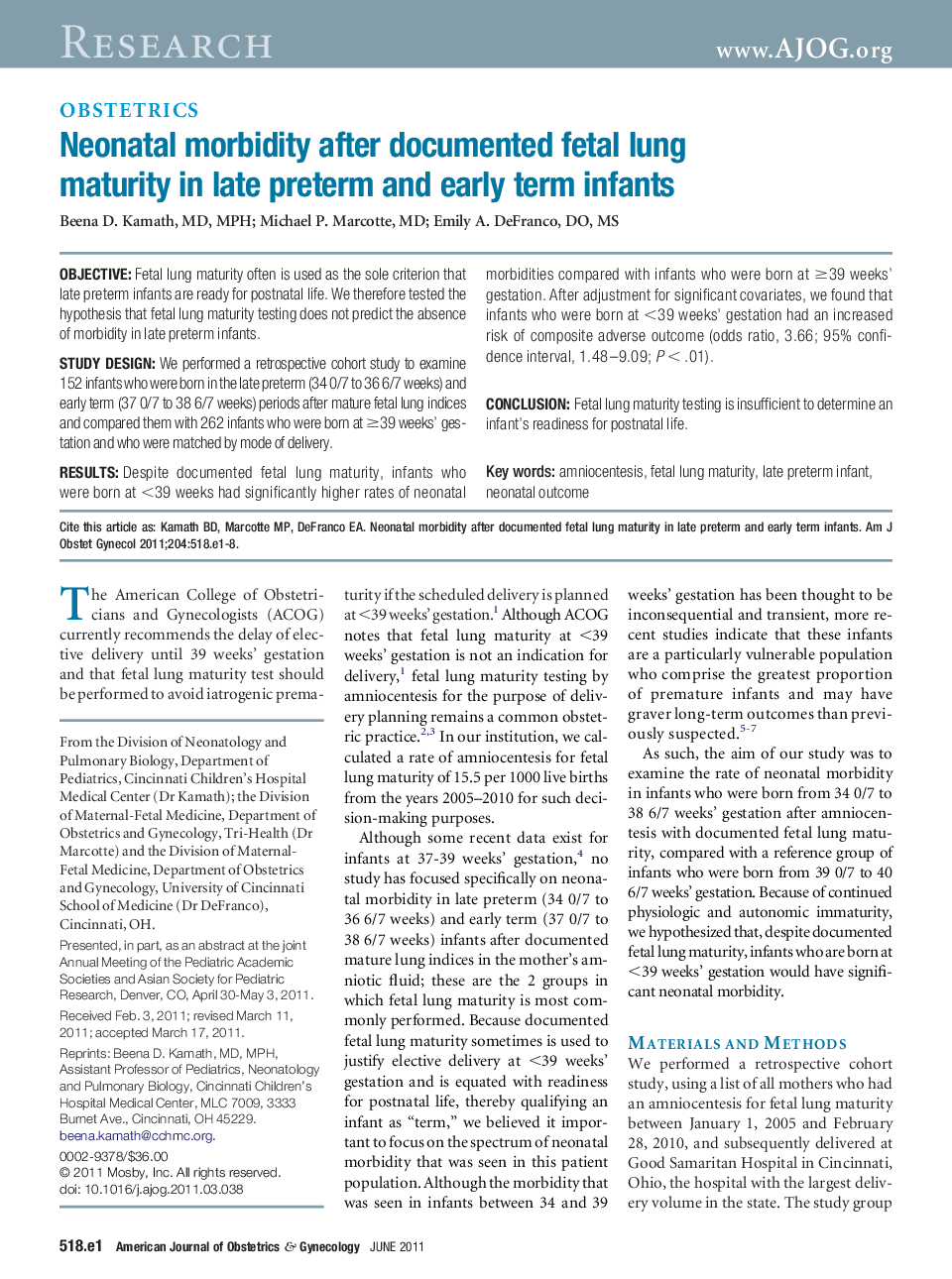| Article ID | Journal | Published Year | Pages | File Type |
|---|---|---|---|---|
| 6146638 | American Journal of Obstetrics and Gynecology | 2011 | 8 Pages |
ObjectiveFetal lung maturity often is used as the sole criterion that late preterm infants are ready for postnatal life. We therefore tested the hypothesis that fetal lung maturity testing does not predict the absence of morbidity in late preterm infants.Study DesignWe performed a retrospective cohort study to examine 152 infants who were born in the late preterm (34 0/7 to 36 6/7 weeks) and early term (37 0/7 to 38 6/7 weeks) periods after mature fetal lung indices and compared them with 262 infants who were born at â¥39 weeks' gestation and who were matched by mode of delivery.ResultsDespite documented fetal lung maturity, infants who were born at <39 weeks had significantly higher rates of neonatal morbidities compared with infants who were born at â¥39 weeks' gestation. After adjustment for significant covariates, we found that infants who were born at <39 weeks' gestation had an increased risk of composite adverse outcome (odds ratio, 3.66; 95% confidence interval, 1.48-9.09; P < .01).ConclusionFetal lung maturity testing is insufficient to determine an infant's readiness for postnatal life.
